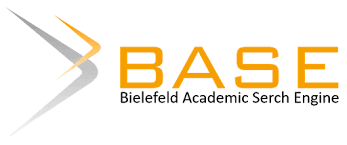PENGUATAN SOFT SKILL DAN KETAHANMALANGAN (Adversity Quation) DENGAN PENDEKATAN BUDAYA LOKAL SPIRITUAL DALAM PENGEMBANGAN GOOD CHARACTER SISWA
Keywords:
Soft Skill, Adversity Quation, CharacterAbstract
Education is a process of change in the development of knowledge (cognitive), skills (psychomotor) and attitudes (affective) person, then education should produce an output proportional to the ability of the hard skills and soft skills. In addition to the curriculum which has a charge that is lower than the soft skills payload hard skills, soft skills with the imbalance between hard skills can also be caused by a learning process that emphasizes the acquisition value of test results and the value of the test results. Globalization (without limit) create an atmosphere of competition in life is getting tougher. Only people who are competitive, not easily discouraged and ready to accept the challenge that will be successful in life. So people with low adversity Quation will run over time, while those with high adverity Quation will be successful and become a winner. The success of a person is not only determined by IQ (Intelligence quation) but also by adversity quotient (AQ) owned. Bali has a wide range of spiritual culture that can be used as a shield themselves from a variety of negative effects that harm. For it to develop spiritual culture at the level of soft skills and adversity Quation, a person is able to optimize towards the positive character development for the realization of qualified human resources in accordance with national education goals.
Downloads
References
Danim, Sudarwan. 2010. Pengantar Kependidikan (Landasan, Teori, dan 234 Metafora Pendidikan). Bandung: CV Alfabeta.
DeVries, R. and Zan, B. 1994. Moral Classrooms, Moral Children: Creating a Constructivist Atmosphere in Early Education. New York and London: Teachers College Press.
Given, B.K. 2007. Teaching to the Brain’s Natural Learning System. L. H. Dharma (penerjemah). Brain-Based Teaching. Bandung: Kaifa
Kaelan, H. 2003. Pendidikan Pancasila. Yogyakarta: Penerbit :Paradigma
Lickona, T, Schaps E dan Lewis, C. 2002. Eleven Principles of Effective Character Education. Washington, DC: Character Education Partnership.
Prayudi, Yusuf Yudi. 2007. Adversity Quotient (AQ). http://prayudi.wordpress.com/2007/05/10/adversity-quotient-aq/,
Sandy, Widy Taurus. 2008. Pendidikan Soft Skill.http://widytaurus.wordpress.com/2008/02/13/53/,
Somantri, M. N. 2001. Menggagas Pembaharuan Pendidikan IPS. Bandung: PT Remaja Posdakarya
Subagia, I W. 2006. Pengembangan Model Siklus Belajar Berdasarkan Potensi-Potensi Kearifan Lokal Masyarakat Bali dalam Bidang Pendidikan (Studi Pengembangan Model Siklus Belajar Berbasis Budaya. Laporan Penelitian Hibah Bersaing Lanjutan (Tidak dipublikasikan). Singaraja: Universitas Pendidikan Ganesha.
Sucipta, I Nyoman. 2009. Holistik Soft Skills. Denpasar: Udayana University Press.
Sugiyono.2013. Metode Penelitian Pendidikan. Alfabetha. Bandung.
Sukadi. 2006. Pendidikan IPS sebagai Rekonstruksi Pengalaman Budaya Berbasis Ideologi Tri Hita Karana (Studi Etnografi tentang Pengarh Masya-rakat terhadap Pelaksanaan Program Pendidikan IPS di DMA Negeri 1 Ubud). Disertasi (tidak dipublikasikan. Bandung: UPI Bandung
Stoltz, Paul G. 2003. Adversity Quotient Mengubah Hambatan Menjadi Peluang. Terjemahan T. Hermaya. Adversity Quotient : Turning Obstacles into Opportunities. Jakarta: Grasindo.
Undang-Undang Republik Indonesia Nomor 20 Tahun 2003 tentang Sistem Pendidikan Nasional. 2003. Jakarta: Depdiknas
Widja, I G. 2007. Membangun Kembali Jiwa Pendidikan dalam Sistem Persekolahan Kita (Satu Tinjauan Cultural Studies). Jurnal Pendidikan dan Pengajaran Universitas Pendidikan Ganesha, Vol. 40, No. 1 Tahun 2007. Hal. 74 -87.
Wibhowo, Christine. 2011. Adversity Quotient for Parent’s Time Tri Tunggal. http://xtinewibhowo.wordpress.com/2011/03/14/adversity-quotient-for-parents-time-tri-tunggal/,
Widyatmika. 2010. Soft Skills Dalam Proses Pembelajaran.http://staff.unud.ac.id/~widyatmika/?p=27,
Downloads
Published
How to Cite
Issue
Section
License
Copyright (c) 2020 LPPM Universitas Mahadewa Indonesia

This work is licensed under a Creative Commons Attribution-NonCommercial-ShareAlike 4.0 International License.
Hak cipta mencakup hak eksklusif untuk mereproduksi dan mengirimkan artikel ini dalam semua bentuk dan media, termasuk mencetak ulang, memotret, mikrofilm dan reproduksi serupa lainnya, serta terjemahannya. Reproduksi dari bagian manapun dari jurnal ini, penyimpanannya di database dan transmisinya dengan bentuk atau media apa pun, seperti salinan elektronik, elektrostatik dan mekanis, fotokopi, rekaman, media magnetik, dan lain-lain, akan diizinkan hanya dengan izin tertulis dari penerbit jurnal.






1_(1).jpg)











